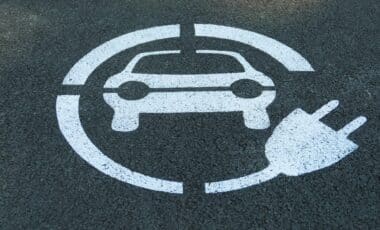The rise of Chinese-made electric vehicles (EVs) on Australian roads has sparked heated debates. While their affordability and technological prowess attract buyers, experts are voicing concerns over potential security vulnerabilities tied to these vehicles. The growing presence of Chinese EVs, paired with global policy shifts, presents a complex challenge for both consumers and governments.
Security Concerns Surrounding Chinese EVs
Chinese electric vehicles are transforming the automotive landscape, but their integration comes with significant risks. Embedded technologies that enhance convenience may also introduce vulnerabilities that demand closer scrutiny.
Data Vulnerabilities and External Controls
Experts have raised alarms over the advanced technology embedded in Chinese electric vehicles. These cars often feature cutting-edge connectivity, such as :
- Cameras, microphones, and GPS tracking: Tools designed for user convenience may also create opportunities for data exploitation.
- Over-the-air updates: Vehicles can be remotely updated, similar to smartphones, potentially opening pathways for unauthorized access.
Senior motoring journalist Paul Gover expressed concerns, highlighting the possibility of these vehicles being “controlled or updated directly from China.” While such updates can enhance performance, they also raise questions about external influence and data privacy.
Global Policy Implications
The United States has already acted on these concerns, with plans to restrict software in Chinese and Russian-made vehicles by 2027 and hardware imports by 2030. The ban targets technologies that could compromise national security, setting a precedent for other nations, including Australia, to evaluate their policies.
Key Points of Concern
- Potential manipulation of vehicle systems through external updates.
- Collection and exploitation of sensitive data via in-car technologies.
- Alignment with free trade agreements, complicating regulatory measures.
The Australian Perspective on Chinese EVs
Australia’s commitment to environmental goals is driving the widespread adoption of electric vehicles, including those manufactured in China. Yet, the rapid influx of these vehicles has sparked debates about balancing sustainability with national security.
Rapid Growth in Chinese EV Market Share
Chinese brands such as MG and Chery are becoming increasingly prominent in Australia. Their competitive pricing and Australia’s free-trade agreement have fueled their dominance. Since Chery’s reentry into the market in 2023, the landscape for electric vehicle sales has shifted significantly. Over 15 Chinese car brands have entered the Australian market within the past year, reflecting China’s ambitions to lead in car sales globally.
Government Stance on EV Adoption
Australia’s focus on reaching net-zero emissions by 2050 has made EV adoption a national priority. Gover noted that this environmental agenda aligns with the influx of Chinese electric vehicles, leading to limited government scrutiny despite the potential risks.
Key factors influencing the government’s approach include:
- The push for sustainable transport solutions to meet climate targets.
- Economic incentives tied to increased EV adoption.
- Balancing security concerns with environmental objectives.
Conflicting Interests
Gover pointed out that while these vehicles support Australia’s green agenda, their integration poses a potential conflict of interest. “What they love is the fact that it’s luring people into getting electric cars,” he remarked. “But really, is it a good thing? Do we need the Chinese to be doing this?”
Navigating the Challenges
Gover pointed out that while these vehicles support Australia’s green agenda, their integration poses a potential conflict of interest. “What they love is the fact that it’s luring people into getting electric cars,” he remarked. “But really, is it a good thing? Do we need the Chinese to be doing this?”
Implications for Consumers and Policymakers
The increasing influx of Chinese electric vehicles into the Australian market presents several challenges :
- Consumer awareness: Buyers may prioritize affordability without fully understanding the security implications.
- Policy gaps: Unlike the US, Australia lacks concrete measures to mitigate risks associated with foreign-made EVs.
- Cybersecurity concerns: Vehicles with extensive connectivity features could potentially act as “listening devices,” as pointed out during Australian senate discussions.
Balancing Innovation and Security
The rise of Chinese EVs demonstrates their manufacturing prowess and technological sophistication. However, as Gover emphasized, the convenience offered by features such as remote updates must be weighed against the potential security risks.
The growing presence of Chinese electric vehicles in Australia is reshaping the automotive market. As buyers embrace their affordability and innovation, concerns about data privacy and national security demand attention. Striking a balance between technological advancement and safeguarding security remains crucial for Australia’s futur.









